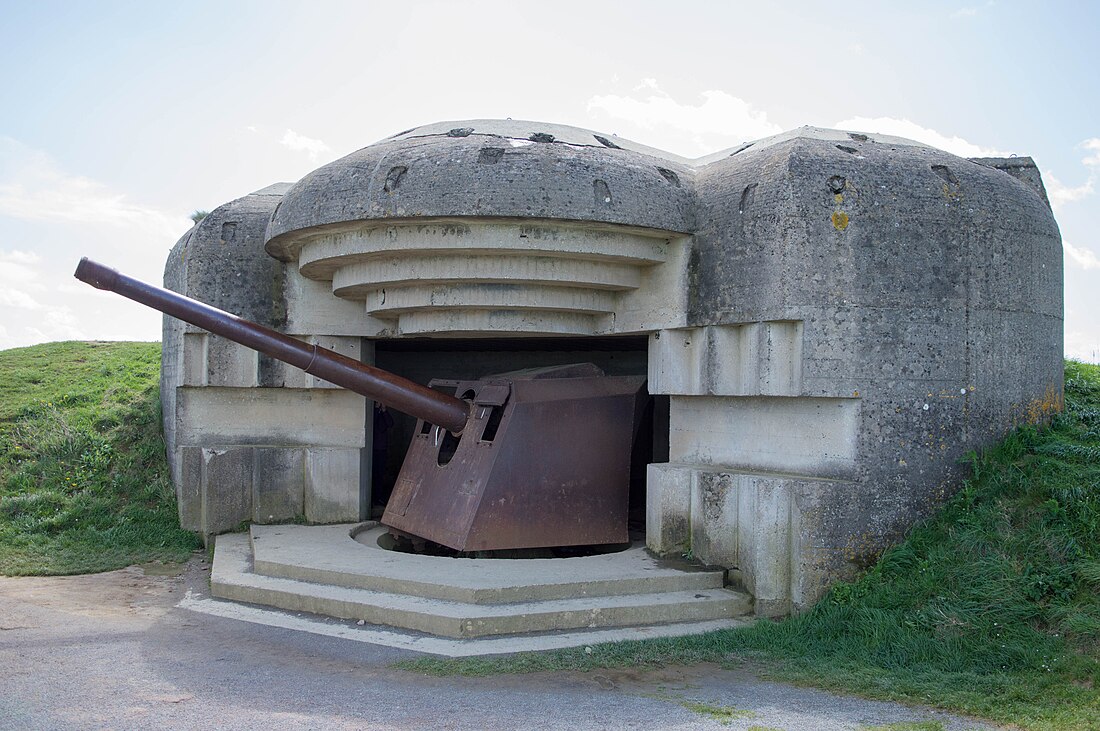Top Qs
Timeline
Chat
Perspective
German World War II fortresses
Strategic areas for Germany in WWII From Wikipedia, the free encyclopedia
Remove ads
German fortresses during World War II (German: Festungen or Fester Platz, lit. 'fixed place'; called pockets by the Allies) were bridgeheads, cities, islands and towns designated by Adolf Hitler as areas that were to be fortified and stocked with food and ammunition in order to hold out against Allied offensives.

This article needs additional citations for verification. (May 2011) |
The fortress doctrine evolved towards the end of World War II, when the German leadership had not yet accepted defeat, but had begun to realize that drastic measures were required to forestall inevitable Allied offensives. The first such stronghold was Stalingrad.[1]

On the Eastern Front, Warsaw, Budapest, Vilnius, Kolberg, Königsberg, Küstrin, Danzig and Breslau were some of the large cities selected as strongholds.
On the Western Front, Hitler declared eleven major ports as fortresses on 19 January 1944: IJmuiden, the Hook of Holland, Dunkirk, Boulogne-sur-Mer, Le Havre, Cherbourg, Saint-Malo, Brest, Lorient, Saint-Nazaire and the Gironde estuary. In February and March 1944 three more coastal areas were declared to be fortresses: the Channel Islands, Calais and La Rochelle.[2]
Remove ads
Fate of the fortresses
Summarize
Perspective
The fate of the fortress areas varied. Stalingrad, the first to fall, is seen as a crucial turning point in the war, and one of the key battles which led to German defeat. In several cases, Alderney, for example, the fortresses were bypassed by the attackers and did not fall, surrendering only after the unconditional surrender of Germany.
One fortress, Courland, would see guerrilla war being waged in the area after 1945 to the late 1950s by Latvian and Lithuanian partisans, with a few Germans who fought as Forest Brothers, with individual guerrillas remaining in hiding and evading capture into the 1980s.
Remove ads
See also
Notes
References
External links
Wikiwand - on
Seamless Wikipedia browsing. On steroids.
Remove ads
